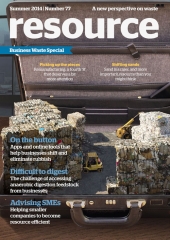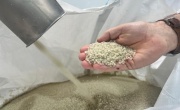To BIS or not to BIS?
As the economic benefits of recycling are increasingly noted, there are calls for the waste portfolio to be moved from Defra to BIS. Annie Reece reports
In February, a group of Conservative MPs, 2020C, called on government to change its approach to waste, arguing that seeing waste as a ‘resource’ and ensuring recycling could see the UK save £2.5 billion worth of materials from landfill.
The economic case for making better use of resources is not new, but, 2020C argued, if government were to seriously view waste as ‘an opportunity not a liability’, it should not only rename the waste portfolio ‘resources’, but also move it from the Department of Environment, Food & Rural Affairs (Defra) – which ‘stepped back’ from some areas of waste policy in April – to the Department for Business, Innovation & Skills (BIS).
These calls have been reiterated by several bodies over the summer, with the Institute of Civil Engineers (ICE) suggesting in its annual ‘State of the Nation’ report that government should establish an Office for Resource Management (ORM) at BIS to tackle a ‘lack of government co-ordination’, while manufacturers’ organisation EEF has said that not only is an ORM needed (again, in BIS), but also that it should ‘lead on an update of the Resource Security Action Plan… to inform policy making and direction across government’.
The main arguments for taking the waste and resources portfolio away from Defra can be summed up in this excerpt from 2020C’s report, ‘Sweating our Assets’: ‘Defra will only ever look at waste from an environmental point of view but, while environmental considerations are extremely important, reusing, remanufacturing, recycling and reducing landfill use will only be encouraged if waste is seen as an economic opportunity.’
And, it seems government is listening. In June, the House of Lords Science and Technology Committee announced that government had ‘embraced’ the central recommendations from its inquiry into the development of a bioeconomy, and would be appointing BIS’s Minister of State for Business and Energy (then Michael Fallon) as the ministerial ‘champion’ for the bioeconomy. This position, the government response went on to outline, would ‘ensure the production of a long-term plan’ to ‘support the development of a high value waste-based bioeconomy’.
 This article was taken from Issue 77
This article was taken from Issue 77Further, the UK government stated that BIS ‘should ensure that waste is collected in such a way as to enable it to contribute fully to a high value waste-based bioeconomy’, adding that Defra and the Department for Communities and Local Government (DCLG) needed to ‘adopt a far more ambitious approach to waste collection in order to ensure that waste is collected and treated in a way that maximises the potential for it to be used as a resource’.
But shifting waste and resources out of Defra has not been accepted by all. Speaking in July at the Environment, Food & Rural Affairs (EFRA) Committee’s inquiry into waste management in England, Resource Minister Dan Rogerson said: “These materials are a resource just as water and energy are… but I don’t think you hear the argument that water policy or energy policy should be moved to BIS.
“BIS is already quite a big department with a lot on its hands, and I think that if you moved everything there, [it] may have problems dealing with it. So we’ll work very closely with BIS, but I think, as we’ve hopefully demonstrated [in this inquiry], Defra continues to take this area of policy very seriously [and] to work with partners to deliver improvements, and we want to continue to do so in future.”
Whatever the end outcome, it’s clear that Defra would still need to have close involvement with waste and resources policy to ensure that waste regulation is adhered to, and that the environmental risks of waste and resource management are minimised. 




